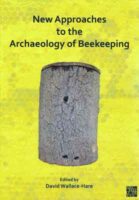New Approaches to the Archaeology of Beekeeping aims to take a holistic view of beekeeping archaeology (including honey, wax, and associated products, hive construction, and participants in this trade) in one large interconnected geographic region, the Mediterranean, central Europe, and the Atlantic Façade. Current interest in beekeeping is growing because of the precipitous decline of bees worldwide and the disastrous effect it portends for global agriculture. As a result, all aspects of beekeeping in all historical periods are coming under closer scrutiny. The volume focuses on novel approaches to historical beekeeping but also offers new applications of more established ways of treating apicultural material from the past. It is also keenly interested in helping readers navigate the challenges inherent in studying beekeeping historically. The volume brings together scholars working on ancient, medieval, early modern, and ethnographic evidence of beekeeping from a variety of perspectives. In this sense it will serve as a handbook for current researchers in this field and for those who wish to undertake research into the archaeology of beekeeping.
David Wallace-Hare (PhD University of Toronto) is an environmental historian of ancient and medieval beekeeping, mining, and forest management in western Europe. He is currently a Postdoctoral Research Associate at the University of Exeter on the NERC-funded project MEMBRA (Understanding Memory of Treescapes for Better Resilience and Adaptation).



